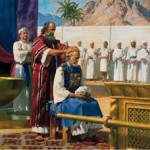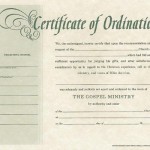How do you view leadership among the church?
I occasionally write about leadership among the church. While I usually write about other topics, for some reason the leadership posts seem to garner the most attention. Why? Well, because among believers today, much of church life is centered around those who we recognize as our leaders.
If you’ve read any of my posts about leaders among the church, then you know that I don’t hold to modern concepts of leadership in the context of the church, not even to the concept of “servant-leader.” Why? Because I think Jesus redefined what it means to lead among the church.
Keith at “subversive1” seems to have a similar understanding according to his post “This is What Leadership Looks Like According to Jesus.”
The post consists of 4 pictures: 2 pictures that Keith describes as “leadership according to Jesus” and 2 pictures that Keith says represent leadership among the church today, but that is not leading according to Jesus.
I’d love to hear your thoughts on Keith’s post (pictures).
You watch out for one another as a priest
In the first post of this series taken from Hebrews 10:19-25, I said that those of us who are in Christ have now been ordained as a priest with Jesus Christ as our great (better than high) priest. The first part of the passage, Hebrews 10:19-21, reminds us of what we have in Jesus Christ: 1) a way into the presence of God through Christ himself, and 2) Jesus Christ as our great priest.
Because we have these things, we should respond in three ways: 1) Draw near to God, 2) Hold fast to the confession, and 3) Consider one another. This post focuses on the second response (Hold fast to the confessions) taken from Hebrews 10:24-25:
And let us consider one another to stir up love and good works, not neglecting to meet together, as is the habit of some, but encouraging one another, and all the more as you see the Day drawing near. (Hebrew 10:24-25)
There are two terms related to “worship” in the New Testament. The first one refers to an attitude or position of bowing down in submission before God. The second one relates to serving others. (This is the type of “worship” referred to in Romans 12:1.) This passage (Hebrews 10:24-25) points to that second type of “worship/service” as a priest of God in Jesus Christ.
The command to “consider one another” refers to looking intently into one another’s lives. It is used in Acts 27:39 to describe how sailors in the middle of a storm studied (“considered”/”looked at”) the shore in order to find a safe harbor. The verb does not simply mean to think about (as the English term “consider” could mean), but it’s a intent searching and focus.
For example, notice how the command “consider” is used in this passage in Hebrews:
Therefore, holy brothers and sisters, you who share in a heavenly calling, consider Jesus, the apostle and high priest of our confession… (Hebrews 3:1)
There is a purpose for our considering one another. We do not consider one another just to do it. Instead, we seek to stir up (or provoke) love and good works in one another. Thus, our “worship/service” produces “worship/service” in others. (Our work as a priest encourages others to do their work as a priest also.)
The final part of that passage (Hebrews 10:25) is unfortunately often used to beat people over the head to “attend church”. But, that passage has very little to do with “attending church” as it is often commanded today.
Instead, it is quite simple. Once we have considered one another and are ready to stir up love and good works among one another, we cannot do that if we never get together with one another. So, we must get together so that we can encourage one another. This is not about gathering together so we can get taught. It’s about gathering together in such a way that we can encourage one another.
Then… the author ends with an urgency. There will be a day when our great priest (Jesus Christ) returns. At that point, our priestly work on this earth will end. Our ability to stir up others to love and good works (even those who have not begun to follow Jesus yet) will cease. So, we serve him by serving others now, and even more as time draws to a close… which happens every year, every month, every week, every day, every hour.
In Christ, we have a direct path to God. We have a high priest that is better than all other high priest. Because of these things, we respond by drawing near to God, by holding fast to Jesus Christ, and by watching one another carefully so we can help one another to “let our lights shine before men.” This is our work as a priest of the new covenant.
You have hope in Christ as a priest
In the first post of this series taken from Hebrews 10:19-25, I said that those of us who are in Christ have now been ordained as a priest with Jesus Christ as our great (better than high) priest. The first part of the passage, Hebrews 10:19-21, reminds us of what we have in Jesus Christ: 1) a way into the presence of God through Christ himself, and 2) Jesus Christ as our great priest.
Because we have these things, we should respond in three ways: 1) Draw near to God, 2) Hold fast to the confession, and 3) Consider one another. This post focuses on the second response (Hold fast to the confessions) taken from Hebrews 10:23:
Let us hold fast the confession of our hope without wavering, for he who promised is faithful. (Hebrews 10:23 ESV)
Several of the terms and phrases in this verse are common in the book of Hebrews: “hold fast,” “confession,” “hope,” “promise (as a verb or noun),” and “faithful.” For example, you will find this terms and phrases in the following passages (among others and not including Hebrews 10:23): Hebrews 3:1, Hebrews 3:2, Hebrews 3:5, Hebrews 3:6, Hebrews 3:14, Hebrews 4:14, Hebrews 6:11, Hebrews 6:13, Hebrews 6:18, Hebrews 7:19, Hebrews 11:11, Hebrews 12:26.
But, in this particular passage (Hebrews 10:23), the terms all come together to reveal more about our response as a priest to the work and identity (as great priest) of Jesus Christ.
The focus of this passage is our “confession.” In the OT, this term referred to an oath or vow that accompanies a sacrifice or offering (more priestly language). In the New Testament, the term typically refers to an acknowledgement of Jesus Christ and the gospel concerning him:
By their approval of this service, they will glorify God because of your submission flowing from your confession of the gospel of Christ, and the generosity of your contribution for them and for all others… (2 Corinthians 9:13 ESV)
Fight the good fight of the faith. Take hold of the eternal life to which you were called and about which you made the good confession in the presence of many witnesses. (1 Timothy 6:12 ESV)
Therefore, holy brothers, you who share in a heavenly calling, consider Jesus, the apostle and high priest of our confession… (Hebrews 3:1 ESV)
Thus our “hope” (to which we “hold fast”) is in the confession or acknowledgement that Jesus Christ is Lord and Savior. (See 1 Corinthians 12:3 and Romans 10:9 for example.)
However, it would be a misunderstanding to say that our own confession/acknowledgement is the source of our hope. Instead, as the author of Hebrews continues to explain, we are only able to hope because the one who promised (God himself) is faithful to keep his promises.
The verse is an image of us holding on to God, but we’re only able to hold on to him because he has his arms wrapped around us.
You can now draw near to God as a priest
In the first post of this series taken from Hebrews 10:19-25, I said that those of us who are in Christ have now been ordained as a priest with Jesus Christ as our great (better than high) priest. The first part of the passage, Hebrews 10:19-21, reminds us of what we have in Jesus Christ: 1) a way into the presence of God through Christ himself, and 2) Jesus Christ as our great priest.
Because we have these things, we should respond in three ways: 1) Draw near to God, 2) Hold fast to the confession, and 3) Consider one another. This post focuses on the first response (Draw near to God) taken from Hebrews 10:22.
The author of Hebrews writes this command in priestly language, to continue the discussion of the priesthood that he began a couple of chapters earlier. However, this time, instead of talking about the shadows of the priesthood and tabernacle/temple that we find in the OT (Hebrews 8:5, Hebrews 10:1), the author is now talking about the priesthood of the new covenant and the temple of the new covenant.
Let us draw near with a true heart in full assurance of faith, with our hearts sprinkled clean from an evil conscience and our bodies washed with pure water. (Hebrews 10:22 ESV)
In the context of the previous few verses (Hebrews 10:19-20), it is clear that “draw near” refers to entering into the “holiest” place (the presence of God) through the “new and living way” that Jesus has provided for us.
But, we are not able to simply draw near to God. Instead, we are able to draw near to God with a true heart being full assured in our faith. Assured of what? Assured that God will accept us as we draw near to him. But, how can we be certain that God will accept us? Why do we have that full assurance or confidence?
Because we have been sanctified, just as the OT priests were sanctified (ordained, if you prefer) before they came near to God’s presence in the tabernacle/temple. The washing/sprinkling language is very similar to the descriptions used in the OT to describe how the levitical priests were set apart (i.e.., sanctified). For example, see Leviticus 8 where Moses carries out God’s instructions regarding setting apart Aaron, the altar, and the items related to offering sacrifices.
But, there is a major difference in the Hebrews passage. Moses’ sanctification of Aaron and the other priests was only outward. The author of Hebrews has already brought that out:
For if the sprinkling of defiled persons with the blood of goats and bulls and with the ashes of a heifer sanctifies for the purification of the flesh, how much more will the blood of Christ, who through the eternal Spirit offered himself without blemish to God, purify our conscience from dead works to serve the living God. (Hebrews 9:13-14 ESV)
As that passage intimates (Hebrews 9:13-14), the focus passage (Hebrews 10:22) spells out. We do not approach God with outward cleansing, but with complete cleansing which includes both the heart and the body. How does this cleansing happen? The clue is in the method of cleansing: pure water.
Ezekiel tells us what kind of “pure water” washes both the heart and the body:
I will take you from the nations and gather you from all the countries and bring you into your own land. I will sprinkle clean water on you, and you shall be clean from all your uncleannesses, and from all your idols I will cleanse you. And I will give you a new heart, and a new spirit I will put within you. And I will remove the heart of stone from your flesh and give you a heart of flesh. And I will put my Spirit within you, and cause you to walk in my statutes and be careful to obey my rules. (Ezekiel 36:24-27 ESV)
Notice the Ezekiel passage contains the ideal of sprinkling and washing with “clean/pure water” and combines it with the coming of the Holy Spirit. It is the indwelling of the Holy Spirit that sanctifies us, sprinkles us, and washes us in a way that cleans our hearts and bodies and makes us eligible (able) to draw near to God.
We have confidence that we can draw near to God because of both the death/resurrection of Jesus (implied in Hebrews 10:19-21) and because the Spirit has washed us clean when he indwelled us (Hebrews 10:22). Notice that this is applicable to all followers of Jesus Christ, and thus all have confidently draw near to God as priests of the new covenant.
Are you in Christ? Then consider yourself ordained!
One of my favorite passages in Scripture in Hebrews 10:19-25. On some of my old blog templates, I even included a quote of part of that passage (Hebrews 10:24-25) in the header. Obviously, that section says alot about gathering together, but gathering is not the focus of the passage.
Instead, in Hebrews 10:19-25, the author provides ordination credentials for all of those who are in Christ! That’s right, according to this passage, if you are in Christ, then you are an ordained priest with as much priestly authority as any other follower of Jesus Christ.
In Hebrews chapter 9, the author spells out that Jesus Christ is a high priest above and beyond the levitical priesthood. Then, at the beginning of chapter 10, he tells us that Jesus’ sacrifice is better than the “shadow” sacrifices spelled out in the Old Testament, and that Jesus’ sacrifice ended the need for any other sacrifice. Leading into the section that we’re studying, he wrote, “Where there is forgiveness of these [sins and lawless deeds – see previous verse], there is no longer any offering for sin.” (Hebrews 10:18 ESV)
Hebrews 10:19-25 begins with a reminder of some of the benefits we have in Jesus Christ:
Therefore, brothers [and sisters], since we have confidence to enter the holy places by the blood of Jesus, by the new and living way that he opened for us through the curtain, that is, through his flesh, and since we have a great priest over the house of God… (Hebrews 10:19-21 ESV)
Notice the “priestly” and “temple/tabernacle” language used in this passage: “freedom [confidence] to enter the holiest places,” “by the blood,” “way… through the curtain,” “great priest,” “house of God.” The author is putting this section of his letter into the context of the priesthood. While he has already told us that the old temple, priesthood, and sacrifices were only a shadow of the reality in Christ, he is now going to tell us about the new priesthood and temple. (He already said that a new sacrifice is not necessary.)
What follows in Hebrews 10:22-25 is our expected response to this new priesthood. In other words, he is going to tell us about our functions as priests of the new covenant. What are those functions? He breaks them down into three commands/exhortations: 1) Draw near to God, 2) Hold fast to the confession, and 3) Consider one another.
In the next few days, I’m going to publish a post about each of those functions. But for now, I simple suggest that each of those are placed in priestly terms. Each of these exhortation are the responsibilities of those who are in Christ – that is, for those who have a new and living way into the presence of God through Christ and for those who have Christ as a great (better than “high”) priest.
Notice that later in the letter the author will talk about “leaders.” Yes, there are leaders among the church, but those leaders do not hold more of a priestly function than any other follower of Jesus Christ. These functions and responsibilities are presented to all followers of Jesus Christ.
Again… All those who have the benefits of Christ listed in Hebrews 10:19-21 are thus also responsible for living out the exhortations found in Hebrews 10:22-25.
Guest blogger: Building a culture of discipleship
I’ve invited several people to write “guest blog posts” for this blog. There are several reasons for this: 1) To offer different perspectives. 2) To generate even more discussion and conversation between blogs. 3) To introduce other bloggers to my readers.
(If you are interested in writing a guest blog post, please contact me at aknox[at]sebts[dot]com.)
This is a guest post by Ben Tayler. His website is at benandcatherine.org.
————————————-
Building a culture of discipleship
Jesus did not say “Go and re-arrange the chairs”. He told His Disciples to “Go and make disciples” through baptizing people and teaching them to be obedient to Him.
I read with interest the recent post about the British Experience of House Churches.
From my experience of working in the UK believers are happy to re-arrange the chairs, think up modern ways of doing the same old thing and generally discuss and talk about ideas that are working in other cultures and contexts. When presented with the challenge of obedience though normally nothing is ever done. Someone commented on this recent post and said, “Our impression, too, is that many of the new churches are souped up versions of the more traditional churches they came out of. It’s why a major paradigm shift has to occur in the view of what church really is.”
What is this paradigm shift that needs to happen?
Well for us and the growing band of people we are working together with (see www.missionbritain.com) it’s all about building a culture of discipleship. Jesus said that those who love him will be obedient to him (John 14:15) Many folks who are having conversations about Church and Discipleship are missing what Jesus is saying to us all – “If you love me, obey my commands” (John 14:15) It’s very simple. Forget models and great ideas and be obedient.
Jesus left us a challenge – baptize people and teach them to obey. So if you are followers of Jesus then join us in regularly asking yourselves
- Are we baptising people?
- Are we teaching people to be obedient to Jesus?
It’s not about meeting in a house. It’s not about doing a certain model of Church. It’s about a shift in our hearts and lives that leads to obedience.
Over the last week or so the UK has seen rioters causing panic and fear across our major cities. A million and one people have offered analysis and ideas about the causes and reasons for these problems. Whilst all these ideas might have some value. It is not helping things to move forward.
I cannot help but look at how Jesus trained His Disciples to recognize and be the answer to problems. Two situations sum up what I am trying to explain…
The first is when Jesus and His followers are faced with the problem of feeding thousands of people with a tiny amount of food. Jesus puts the responsibility of feeding the crowds onto the shoulders of the disciples. He says to them, “They don’t need to go away, you give them something to eat.” (Matthew 14:16) Prayer is good. Planning is great. Obedience to what Jesus tells us to do is even better.
The second situation is when Jesus is about to leave the earth and is helping his Disciples to recognize another problem. Jesus is departing but the whole world needs to hear the message of the Kingdom and find freedom through obedient faith in Him. Jesus again puts the responsibility onto the shoulders of His Disciples, “Go and make disciples of all nations………” (Matthew 28:19) Are we asking Jesus to do something that He has already asked us to do? He said “Go” 2000 years ago what are we waiting for?
A Disciple of Jesus is someone who asks “What am I doing and what am I going to do?”
A million and one people have commented about the riots in the UK. They are asking what the government is doing and what “they” are going to do about it. The response of a Disciple is always “What do I need to do?” For Disciples of Jesus Christ in the UK our hope lies not in the ability of our Government but in the obedient and gracious response of the body of Christ. Christ is working in the nations through obedient followers – like He always has!
So we come back to the paradigm shift that needs to happen. In most Churches the talk is about “What do the leaders need to do?” “What is the Church doing?” “What are they doing?” At conferences all the talk is about what so and so is saying or what so and so is writing about at the moment. Whilst it’s great to listen to the thoughts of others – it’s better to do what God is telling you to do. This is the Discipleship paradigm. Hearing God and obeying Him.
In the Discipleship paradigm the focus is on “I will” statements. “I will be a witness of Jesus” “I will obey scripture” Here in the UK there is a need to move on. We have discussed the issues. We have recognized the challenges. We have seen the huge harvest fields and crowds. Let’s begin laboring together with God to build a culture of discipleship and consider what we are going to do.
When we gather together with other believers let’s hear what God is saying to us. Let’s examine the scriptures. But let’s move on from that and commit to what we are going to do about it. The Church has traditionally focused on the accountability of coming to meetings and listening to the preacher. Let’s make a shift to focus on the accountability of what we do as a result of listening to teaching/scripture.
“Now that you know these things you will be blessed if you do them…….” (Jesus, John 13:17)
Replay: Running and Maturity in the Church
Two years ago, at the end of the summer of 2009, I wrote a post called “Running and Maturity in the Church.” Margaret (my wife) and I had decided to train to run in a 5k race, mainly to get in shape. It didn’t work out for several reasons. But, getting back into running as exercise helped me understand something about spiritual gifts. I hope you enjoy this post.
——————————
Running and Maturity in the Church
Last Summer, my wife Margaret and I decided to walk together in the mornings. I learned alot about community during our walks together (see my post “Walking Together“).
This Summer, we tried to walk together again. For some reason, we were having a difficult time remaining motivated. Some friends decided that they were going to start training for a marathon in February. I’m not ready to commit to a marathon, but I decided to start training for a 5k in October. (You probably know this already if you follow me on Twitter or read my Facebook status updates.)
So, last week, Margaret and I began training for the 5k. The difference between our 5k training and our walking last summer is that we have to run some for our 5k training. Eventually, we will only run. But, of course, we’re not ready for that yet.
When I was in middle school (we called it junior high school) and high school, I could run long distances. But, years and years of sitting behind a computer screen has taken a toll on my body. I need this exercise and I need to get back in shape, so I’m excited about the prospects. Plus, I’m more motivated now that I have a specific goal: the 5k in only a few weeks, and perhaps a 1/2 marathon in February if everything goes well.
But, I’ve learned something about the body over the last few days that I think is applicable to the church as the body of Christ. When I started running, I realized that my body is not in shape to do what it needs to do. However, it wasn’t every part of my body that was holding me back.
My arms were working just fine, and if I left it up to my arms, I could run for long distances. Similarly, my eyes and ears and nose were very happy to keep running long after I had to stop.
Surprisingly, even my legs and feet were able to carry be farther than I expected. Yes, my legs – especially my calves – would be tired after running. However, if I left everything up to my legs, I could have kept running longer.
But, my lungs would not allow me to run any longer. My breathing is not where it needs to be to be able to run long distances. Therefore, right now, I’m training my lungs and breathing as much as – and perhaps more than – I’m training my legs.
It is very interesting to me that my lungs are hidden from sight. I can’t see them, and they don’t appear to be very important from an outward perspective. But, unless my breathing capacity increases, I won’t be able to run for long distances.
I could spend hours exercising my legs and arms, my chest and abs, but unless I exercise my lungs, I will not be able to do what I need to do.
This reminded me to two specific passages in Scripture dealing with the church. First, consider this passage from 1 Corinthians:
But as it is, God arranged the members in the body, each one of them, as he chose. If all were a single member, where would the body be? As it is, there are many parts, yet one body. The eye cannot say to the hand, “I have no need of you,” nor again the head to the feet, “I have no need of you.” On the contrary, the parts of the body that seem to be weaker are indispensable, and on those parts of the body that we think less honorable we bestow the greater honor, and our unpresentable parts are treated with greater modesty, which our more presentable parts do not require. But God has so composed the body, giving greater honor to the part that lacked it, that there may be no division in the body, but that the members may have the same care for one another. If one member suffers, all suffer together; if one member is honored, all rejoice together. Now you are the body of Christ and individually members of it. (1 Corinthians 12:18-27 ESV)
It is obvious that every part of the body of Christ is important – even those parts that may be less noticeable and may seem less important. In fact, according to Paul, these parts are even more important than we think because God has given those parts greater honor.
Second, consider this passage from Ephesians 4:
And he gave the apostles, the prophets, the evangelists, the pastors and teachers, to equip the saints for the work of ministry, for building up the body of Christ, until we all attain to the unity of the faith and of the knowledge of the Son of God, to mature manhood, to the measure of the stature of the fullness of Christ, so that we may no longer be children, tossed to and fro by the waves and carried about by every wind of doctrine, by human cunning, by craftiness in deceitful schemes. Rather, speaking the truth in love, we are to grow up in every way into him who is the head, into Christ, from whom the whole body, joined and held together by every joint with which it is equipped, when each part is working properly, makes the body grow so that it builds itself up in love. (Ephesians 4:11-16 ESV)
According to this passage, the body grows (matures) when every part of the body is allowed to do its own work – when every part of the body is allowed to do what it is designed to do. We are not the same, but we need each other. From the negative perspective, if one part of the body is not “working properly”, then the body will not mature.
In my illustration from running, if I exercise my legs, arms, chest, etc. then those parts of my body will get stronger, but my body as a whole will not. The church is to be concerned with the maturity of the whole body, not just with their own maturity.
There are times when I need to stop exercising before my legs or arms are completely tired in order to allow my lungs to grow in capacity. There are times when those “more presentable” parts of the church should allow the “less presentable” to work, even if the “more presentable” could “do a better job”. Why? Because by allowing the “less presentable” parts to work, then the whole body is allowed to grow in maturity.
By the way, I’ve also found that when I allow my lungs to dictate how much I can run, my legs actually get a good workout. Those of us in the church who are more “noticeable” may (ummm… will) find that even we grow and learn when we allow the “less noticeable” to do the work. In fact, it is worth it to our own growth and the growth of the body for us to shut up occasionally and to encourage others to speak or serve instead – as long as we’re willing to listen and learn from them.
Just make sure to send in your tithe…
There have been several good posts recently about tithing.
Guy at “The M Blog” wrote a post called “Kingdom giving trumps storehouse tithing.”
BeckyLynn wrote a post called “Old vs. New, Part III (II Corinthians 8 & 9)” for her church’s website.
Both of these authors conclude that Christians are not obligated to “pay their tithe” to their local church, but instead are to give generously to those who are in need.
This is a hot topic today, especially as more and more people question the modern church organizational system. Without the tithe, of course, the entire system falls apart.
Exercise for a Healthy Church: Conclusion
This week, I’m publishing a series about the kind of “exercise” that helps churches remain (become) healthy. (If you haven’t read it yet, here’s the “introduction” post.) This series goes along with my series from last week called “A Healthy Diet for the Church.”
There are many different types of exercise which go above and beyond the normal things necessary for existence. This series focuses on three such exercises: 1) trusting, 2) giving, and 3) proclaiming.
Obviously, these three are not the only ways that the church must exercise in order to remain (become) healthy. However, these three “exercises” have a few things in common, and these commonalities can help us recognize other “exercises” that will aid the church in remaining (becoming) healthy.
First, the exercises of trusting, giving, and proclaiming are not centered on the self nor are they interested in benefiting the self.
Second, these three exercises are impossible to “do” by one’s own strength.
Third, these exercises move out of the realm of thinking and understanding into the realm of living – real life – actions.
Fourth, the focus of all of these exercises is not a healthy church, but Jesus Christ himself.
This last point is both the most obvious, and also the one that is most overlooked. The church does not remain (become) healthy by focusing on these kinds of healthy activities. Instead, we must focus on our Lord and Savior Jesus Christ, more and more, in every aspect of our lives.
However, we can look into these areas of our lives and ask, “Are we demonstrating that we are being healthy as the church? Are we trusting God in everything we do? Are we giving our time, energy, resources to those who are in need and not in Christ? Are we proclaiming the good news of Jesus Christ even when we are reviled or rejected?”
If not, doing these things will not make us healthy. Instead, focusing on Jesus Christ will lead us into health and maturity and we will do these things – among others. When I say “focus on Jesus Christ,” I don’t mean talking about him or putting his name on our ministries. Instead, I mean giving up everything except for Jesus Christ, even those things we hold dearest… even “Christian” things.
Every group of believers can go through times of healthy living and unhealthy living. The question is, “Are we continually seeking Jesus Christ together – to be completely obedient to him in everything we do?” If not… not just saying it but doing it… then we will continue to move in the direction of unhealthy lives.
What would add to my discussion of exercise for healthy churches?
Translating the gospel and disciple making in American (Western) culture
Dan left a very good comment on my post “New disciples = disciple makers in Acts 13.” In this post, I want to highlight Dan’s comment as well as (hopefully) start a discussion/conversation about a very important point that he raises.
To begin with, the post itself was about the response of the Gentiles in Antioch of Pisidia when Paul and Barnabas shared the gospel with them. They were so excited and so overjoyed that they immediately began sharing the same gospel with the people of their city and the surrounding area. How do we know? Because Luke tells us that the word (message) of the Lord spread throughout the whole region.
In response to this post, Dan said:
This is so true and glorious. But one thought occurs to me:
How do we translate this in America? To those people, this was brand new I think, and very liberating and so they welcomed it enthusiastically. In the U.S., the mass of population has been inoculated against the Gospel by hundreds of years of abuse by the institutional church — overpoliticized, hypo(and hyper-)critical, unloving, judgmental,ritualized professional. My wife says it seems we’re always fighting a two-front war — one with the unsaved and one with the traditional church. I feel every time I share my faith with someone i have to first issue a disclaimer that I’m not “Christian” the way they think of the term.
So… I ask you the same question that Dan asked me: How do we translate this (what we read about in Acts 13:48-49 especially) in America, or other parts of the “Christianized” Western world?










